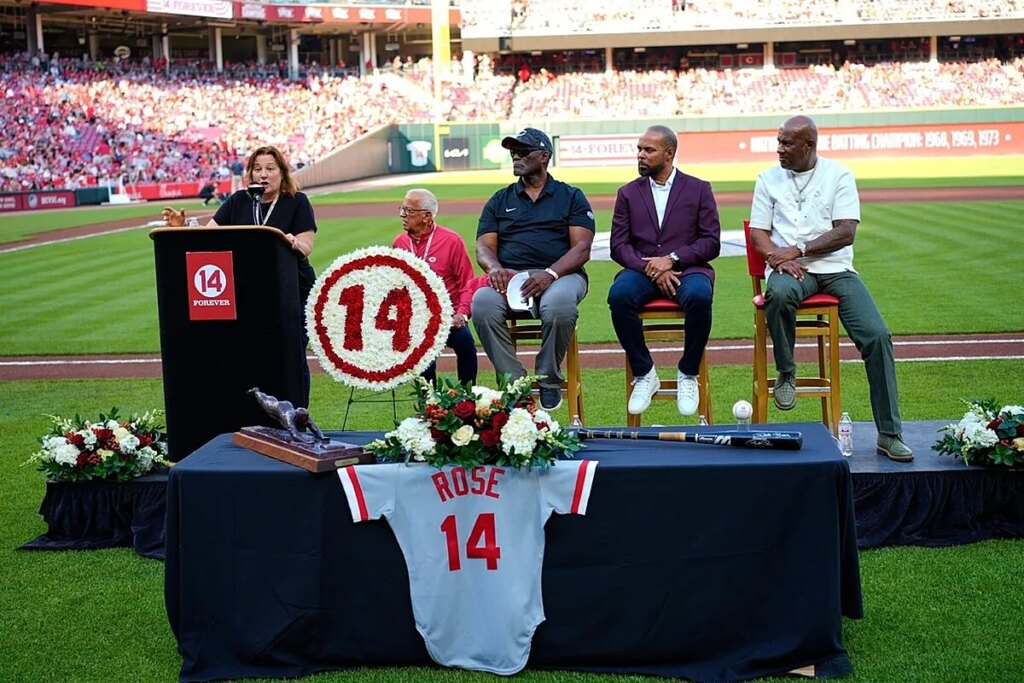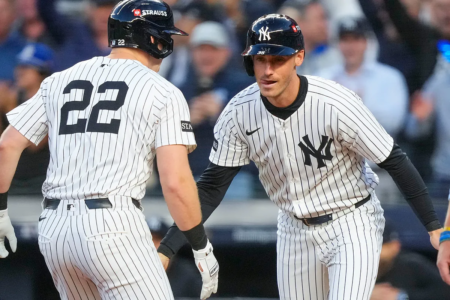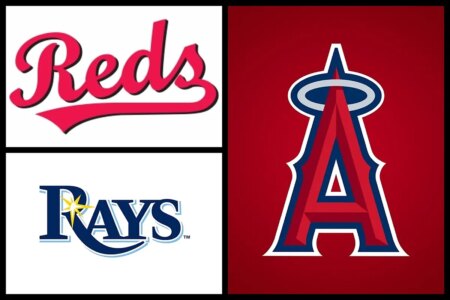Major League Baseball legend Pete Rose was posthumously honored by the Cincinnati Reds on Wednesday, a day after the league finally lifted the ban that kept him on the MLB’s permanent ineligibility list.
During the tributes to the all-time Major League hit leader, fans chanted his name, “Pete! Pete!” in the stands at Great American Ball Park. There was a minute’s silence before the game, and a choir from Rose’s high school in Cincinnati performed the National Anthem
In addition, his legendary number 14 appeared everywhere, from the replica jerseys in the stands to the highlights of his career on the screen, in a tribute that Rose would always have wanted to receive in life.
“This city was my dad,” said Rose’s daughter, Fawn, who was present in the park
Other team legends such as Hall of Fame shortstop Barry Larkin and Eric Davis, who played for Rose when he managed the Reds, shared anecdotes about their former manager during a pregame talk attended by George Foster, Rose’s former teammate. Members of Rose’s family threw out the first pitch before the 4-2 loss to the Chicago White Sox.
A tribute that did not arrive in time
“He played baseball with as much passion and competitive enjoyment as ever,” said Reds manager Terry Francona, who played with Rose in Montreal and played for him in Cincinnati. “You wanted to be on his team.”
Rose, who passed away in September at the age of 83, played for the Reds in 19 of his 24 seasons, winning two of his three World Series championships with his hometown team. His career was marred by a gambling scandal that permanently disqualified him beginning August 23, 1989.
An investigation commissioned by Major League Baseball concluded that Rose, a 17-time All-Star with 4,256 hits, repeatedly bet on the Reds as a player and manager between 1985 and 1987, a violation of a long-standing MLB rule.
After decades of seeking forgiveness, it was not until Tuesday that commissioner Rob Manfred announced that he would change the league’s policy on permanent ineligibility, stating that suspensions would expire upon death. Manfred met with Fawn Rose and Jeffrey Lenkov, the attorney who represented Pete Rose, on December 17.
Manfred “was kind and attentive,” Fawn Rose said. “He really gave me the opportunity to talk about my dad, not the baseball player, but the father, the grandfather and what it really means to the Cincinnati fans.”
Pete Rose Jr., who played 11 games with Cincinnati in 1997, said he was angry when he heard of Manfred’s decision because he could not call his father. But he considered the change a step in the right direction.
“I’m sorry to say this, but it’s not going to bring him back,” he said. “If they had told him that they would not take him off the list, but that he would come back, well, they would bring him back. But today there are only positive things”.
While Rose’s gambling ban made him a baseball pariah, in Cincinnati, which is presumed to be the home of the oldest Major League Baseball team, he was a celebrity. He was almost unanimously beloved in his hometown for his relentless style of play and his connection to the Big Red Machine, the Reds’ dominant teams of the mid-1970s.
“My dad would tell me stories about how hard he played every time,” said Reds reliever Brent Suter, a Cincinnati native. “You know, he never took a break, always ran 90 feet, slid headfirst, got dirty in every game… He was a guy who personified toughness and courage.“
With information from LAPRESSE
Read the full article here











